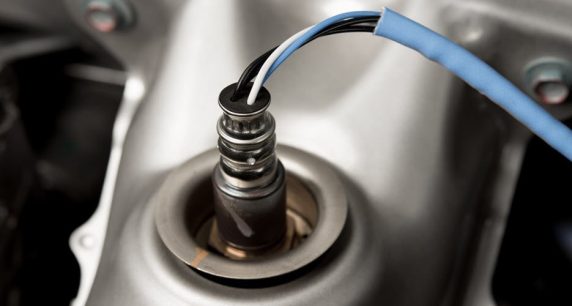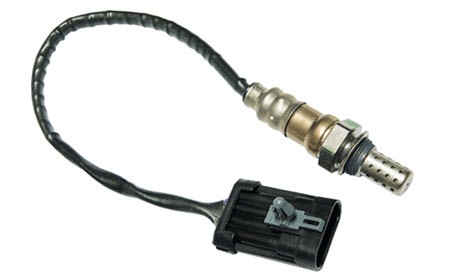Why Is the O2 Sensor Important for Your Car?

Engine functioning and vehicle performance hinge upon several factors. As you might have guessed, your car is complex and can be affected by any number of issues that come up with the various symptoms involved in optimal functioning. Your car can be broken down into parts and systems that work together in harmony to produce appropriate running conditions that are associated with the particular brand and type of vehicle you drive. When one, or more, of these parts begins to malfunction, it can take a toll on your vehicle’s performance and overall function. The best way to prevent issues from occurring is to stay on top of maintenance and repair procedures.
While all of your vehicle’s parts and systems are critical to its overall performance, one of the most elemental pieces of your car’s functioning is the O2 sensor. We’ll get more into what the O2 sensor does and how to detect issues with it, and it’s essential to understand the system that the O2 sensor is a part of. Involved in the exhaust system, the O2 sensor plays several important roles for your car, and it works in tandem with the control module of the car to regulate the air-to-fuel ratio needed for combustion. Here’s a little bit more on the O2 sensor and why it’s important for your car:
WHAT DOES AN O2 SENSOR DO?
As we mentioned, the O2 sensor plays a large role in the combustion process. It is responsible for detecting the amount of oxygen in the air released through your exhaust system and uses the information to adjust the proper amount of air that’s needed for adequate combustion. Communicating with your car’s control module, it has a significant impact on the efficiency of your engine, the gasses that your car releases into the atmosphere, and your car’s ability to function at any given moment. As you might have guessed, this part is needed in order for your vehicle to start and run, and can directly affect your car’s level of reliability.
WHAT ARE THE SIGNS AND SYMPTOMS OF A FAILING O2 SENSOR?
A failing O2 sensor is no picnic—you’ll notice the symptoms right away. Since these signs and symptoms are especially concerning to the modern driver, O2 sensor issues typically get resolved with immediacy. However, the longer the problem is not fixed, the more impact you’ll notice on your vehicle’s reliability and performance. Here are a few of the typical signs that your O2 sensor may be failing and how to know when it needs to be replaced:
ROUGH IDLING OR MISFIRING
Rough idling is usually noticed while you’re sitting in the driveway parked, waiting to leave for work in the morning or to run daily errands. You might not notice it right away, but when you do, it can be jarring. Rough idling is one thing, but engine misfiring is quite another. If your engine misfires, you might consider bring your cars immediately to a trusted automotive workshop.
REDUCED FUEL EFFICIENCY
Perhaps one of the most upsetting symptoms to drivers who experience O2 sensor failure is reduced fuel economy. It is relatively easy to keep an eye on gas mileage these days, especially because most modern cars detect it for you. However, paying close attention to shifts or sudden changes in fuel efficiency can be a warning for various different problems, so it’s important to have a differential diagnosis performed to isolate the source of the issue as the O2 sensor.
ILLUMINATED CHECK-ENGINE LIGHT
The dreaded check-engine light is daunting for any driver, but it’s especially important to bring your car in when it’s illuminated. The reason for this is because when your reliable automotive specialist reads the code reported by the car’s computer, it may clearly indicate that the O2 sensor is the culprit, cutting out the middle man.

HOW TO KNOW WHEN TO REPLACE THE O2 SENSOR
The routine maintenance plan for your vehicle designates when is appropriate or should be expected to replace the O2 sensor. Since the O2 sensor is a critical component of every vehicle, if you suspect that your O2 sensor in your German or Japanese-engineered vehicle is beginning to malfunction or fail, please directly schedule an inspection as soon as possible at any nearest workshop.



